Chin Augmentation in Israel
Search and Compare the Best Clinics and Doctors at the Lowest Prices for Chin Augmentation in Israel
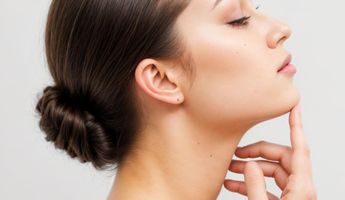
Find the best clinics for Chin Augmentation in Israel
With Medijump you can browse 7 facilities offering Chin Augmentation procedures in Israel. The cheapest price available is $2,429 in Ramat Gan. And for the cheapest price globally, prices start from $70 in Singapore.
Chin Augmentation in Ramat Gan
Price: $ 2,429
Chin Augmentation in Tel Aviv
Price: $ 9,170
Singapore offers the best prices Worldwide
Price: $ 70
From 24 verified reviews
sigalit kochmeister, 11 February 2020
Very professional, kind and attentiveLovely clinic and wonderful staffHighly recommend
From 109 verified reviews
Y N, 22 September 2020
Excellent medical center, with friendly staff and highly qualified doctors.Thank you for your work.My operation was successful
From 126 verified reviews
Y Jilani, 19 September 2020
A huge academic hospital serving the greater jerusalem area, world class health professionals and good location and amenities!
From 122 verified reviews
fadi hreaz, 27 August 2020
Hospital gives reasonable treatment but poor sorting
From 106 verified reviews
Abed Faroge, 22 September 2020
בית חולים וצוות ברמה שירותית ואיכותית מאד גבוהה . צוות מקצועי אדיב וקשוב לצרכי המטופלים . רשמת השירות וההיענות של צוות בית החולים משרה אווירת ביטחון שאכן המטופל בידיים טובות .
From 13 verified reviews
charles avital, 16 January 2020
Very beautiful and perfect
Tel Aviv Sourasky Medical Center (Ichilov Medical Center), located in Arison New Hospitalization Building, Tel Aviv, Israel offers patients Chin Augmentation procedures among its total of 428 available procedures, across 29 different specialties. Currently, there's no pricing information for Chin Augmentation procedures at Tel Aviv Sourasky Medical Center (Ichilov Medical Center), as all prices are available on request only, whilst the national average price is approximately ฿272,799. There are many specialists available at the Clinic, with 13 in total, and they are accredited by JCI Accredited
- Home
- Israel
Compare Before & After Photos of _procedure_photos.phpChin Augmentation
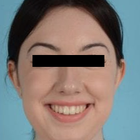
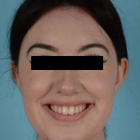
Front view
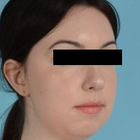
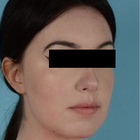
Half-side view
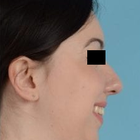
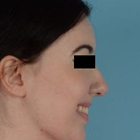
Full-side view
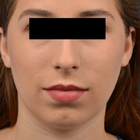
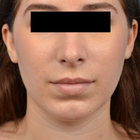
Front view
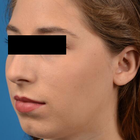
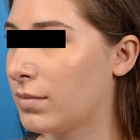
Half-side view
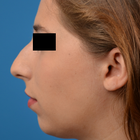
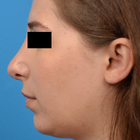
Full-side view
WHY US?
At Medijump, we're making medical easy. You can search, compare, discuss, and book your medical all in one place. We open the door to the best medical providers worldwide, saving you time and energy along the way, and it's all for FREE, no hidden fees, and no price markups guaranteed. So what are you waiting for?

Free

Best Price

Widest Selection

Risk-Free
What you need to know about Chin Augmentation in Israel
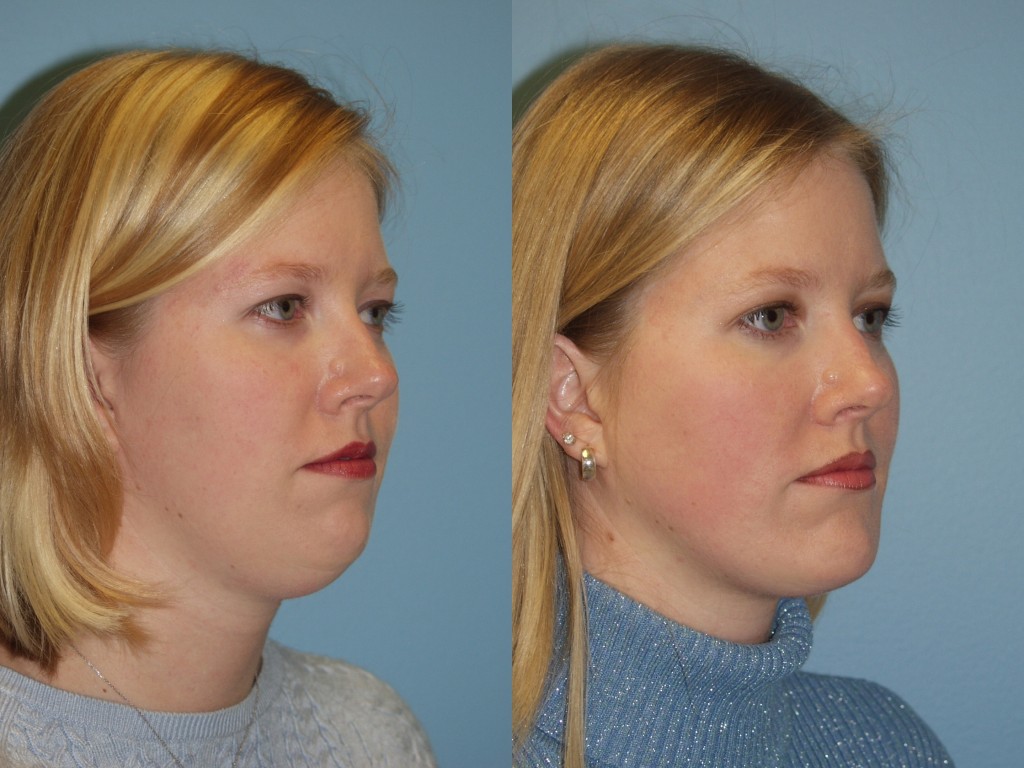
Chin augmentation is a type of genioplasty or mentoplasty (chin surgery). It is a cosmetic surgery done to balance your lower face by altering the soft tissue, skeletal, and dental parts of your face. This type of cosmetic surgery is perfect for both men and women who think that their chins are not shaped proportionally to the rest of their face. The procedure is normally performed at the same time as rhinoplasty or facial liposuction.
There are two key features to a balanced facial profile, your nose and your chin. The chin is an essential feature of your appearance and if it is understated, it will make your facial profile uneven. Typically, a strong and broad chin is considered attractive to men. While a more delicate and narrow chin is appealing to women. However, whether you are a man or a woman, if you are not happy with how your chin looks you may choose to have cosmetic surgery to aid your appearance.
A chin augmentation procedure is usually done to contour your chin and make it:
- More prominent
- Broader in size
- Rounder or more angular
- Project more
- Reduce the appearance of double chin caused by a small chin bone
What is the cost of Chin Augmentation in Israel?
Variances in the price of a Chin Augmentation in Israel may emerge due to multiple influences. Elements that can influence the cost include practitioner expertise, geographical positioning of the service, anaesthetic costs, medical center charges, and the price of post-operative wear and medication. Some medical facilities even offer bundled services encompassing the procedure, recuperation, and follow-up care expenses. Ensuring all prospective costs are eluded during consultation can help avoid surprise bills. Explore healthcare insurance options and payment plans designated for patients that could potentially lessen the financial burden of the procedure.
By opting for a Chin Augmentation in Israel, patients are making a valuable investment in their self-worth and physical appearance. While the financial dimension is a crucial consideration, it shouldn't be the sole deciding factor. Giving precedence to the qualifications of the doctor, the standard of care, and safety measures can help ensure long-lasting and gratifying results. Call a local clinic to get more details on costs.
What does a Chin Augmentation Procedure Involve?
Chin Augmentation can be performed via two types of procedure:
- Chin implants - for chin enlargements, to reshape or push forward your chin’s appearance.
- Sliding genioplasty or Osseous genioplasty (Chin reduction) - this type of approach is for those who aim to have a less prominent jaw appearance.
Good candidates for this type of surgical cosmetic procedure should:
- Be in good health
- Have reasonable and realistic expectations about the outcome of the surgery
- Should not suffer from cardiac problems or hypertension
If you undergo a chin reduction, during your cosmetic treatment procedure:
- You will most likely be under general anesthesia
- An incision will be done inside your mouth along with your lower gum. This will give your surgeon access to your chin bone.
- A bone saw or chisel will be used to make a second cut through your jaw bone. Your jaw bone will then be moved and wired or screwed in place.
- Sutures will be used to close the incision and bandage will also be applied. Since the cut was made inside your mouth, scars will not be visible.
- The procedure will approximately take one to three hours.
As for chin implants, during your cosmetic treatment procedure:
- You may opt for general anesthesia or you may also choose to go under local anesthesia with sedation.
- An incision can be made inside your mouth or outside, under your chin. A pocket will be created under your chin bone and under your muscles. The implant will then be placed inside.
- Your surgeon may use your bone, fat tissue or an implant made out of silicone.
- Your implant will be attached to your bones with stitches or screws.
- Sutures will be used to close your surgical cut. If the cut was made inside your mouth, the scar will barely be seen.
How Long Should I Stay in Israel for a Chin Augmentation Procedure?
After your Chin Augmentation in Israel, your surgeon will recommend a duration of stay for close monitoring and follow-up visits. The duration of your stay typically depends on the specifics of your procedure, your overall health, and the speed of your recovery. If the procedure is uncomplicated, you may be able to leave the hospital on the same day. However, a stay of around 2 to 4 days may be recommended for post-surgery observation and initial recovery. Your surgeon will provide guidelines for activity restrictions, dietary modifications and incision care during this period.
Most patients plan to stay in Israel for approximately 1 to 2 weeks after the procedure for regular check-ups and to ensure optimal healing. After returning home, you may be asked to restrict strenuous activity for a few weeks under the supervision of your local healthcare provider. Remember, your journey to wellness involves commitment to the full recovery process.
What's the Recovery Time for Chin Augmentation Procedures in Israel?
Recovering from a Chin Augmentation is a several-week process, starting with initial discomfort and swelling, managed by painkillers, elevation, and cold compresses. By week two, major swelling subsides, revealing preliminary results. Adherence to a nutritious diet, avoiding strenuous activities, and following the doctor's post-op instructions are crucial for a smooth recovery. The full effect of the procedure should be visible within 1 to 3 months, noting individual recovery times may vary.
What sort of Aftercare is Required for Chin Augmentation Procedures in Israel?
Post-operative care is a crucial component in ensuring the fruition of a Chin Augmentation in Israel. Upon returning home, directives may include continued use of prescribed medications, application of healing ointments, and the upkeep of cleanliness and dryness at the surgical site. Regular consultations with your healthcare practitioner guarantees appropriate healing and the prompt identification of any impending complications. A detailed recovery blueprint may also encompass guidance on implementing positive lifestyle habits and stress mitigation strategies.
You might be necessitated to wear a chin strap for around a week to facilitate the tissues adjusting to their modified structure. In the ensuing weeks, it'd be important to limit physically demanding activities to prevent harm to the operated area. It's imperative to discuss any uncertainties related to post-operative care instructions and restrictions with your healthcare practitioner for ensuring an uneventful recovery.
What's the Success Rate of Chin Augmentation Procedures in Israel?
Success rates for Chin Augmentation in Israel are high with many satisfied patients, however, procedure nature, practitioner expertise, patient health, and post-op care adherence are critical for success. Research highlights boosts in self-esteem and life quality post procedure, though risk evaluations and outcome potentials demands a thorough healthcare provider consultation.
Ultimate success of Chin Augmentation doesn't rely only on surgical proficiency, but also on sufficient aftercare, realistic result expectations, regular check-ins, balanced diet, frequent exercise, and adequate skincare habits, all enhancing result longevity and overall well-being.
Are there Alternatives to Chin Augmentation Procedures in Israel?
The most common reason for having a chin enhancement is usually to correct a recessive or weak chin. While a lot of people would actually prefer to have their facial features enhanced, not all are open to going under the knife to achieve a more appealing appearance.
Today, there are some non-surgical alternatives to cosmetic surgeries, as for chin augmentation procedure, one alternative is:
Chin fillers - small amounts of hyaluronic will be injected into your chin and cheeks to help define your jawline, giving you a strong chin. Chin fillers have a minimal recovery period and the procedure will not take long as compared to the surgery. However, the result is only temporary. It mostly only lasts between nine to twelve months, so if you want to maintain your well-defined chin, you have to go for a repeat session.
What Should You Expect Before and After the Procedure
Prior to the procedure, a detailed consultation with your healthcare provider is anticipated, involving an examination of your medical history and required tests to verify your appropriateness for the Chin Augmentation. The practitioner will elucidate the steps of the procedure, deliberate over your aesthetic objectives, and shape your expectations realistically. You'll be informed about the possible risks, complications, and the anesthesia that will be employed.
Post-procedure, anticipate some mild discomfort, swelling, and bruising, which will gradually diminish over a few days. Comprehensive post-op directives will be provided by your healthcare provider to expedite healing and limit potential complications. Ensuring adherence to the guidelines and regular communication with your healthcare practitioner can enhance your recovery process and results. A positive mindset, patience, and dedication to recovery significantly contributes to procedural success and overall well-being.
What are the Potential Risks of undergoing Chin Augmentation?
Patient reviews often highlight that their Chin augmentation has boosted their self-image and self-confidence. However, like any other surgeries, chin augmentation also poses some risks and complications. Although these instances are very rare, it is also important to be aware of them:
- Infections
- Nerve damage that may cause mouth or lip numbness
- Exposure to screws
- Extrusion of implants
- Allergic reaction to implants
Whilst the information presented here has been accurately sourced and verified by a medical professional for its accuracy, it is still advised to consult with your doctor before pursuing a medical treatment at one of the listed medical providers
No Time?
Tell us what you're looking for and we'll reachout to the top clinics all at once
Enquire Now

Popular Procedures in Israel
Prices Start From $16

Prices Start From $1,945

Prices Start From $672

Prices Start From $432

Prices Start From $101

Prices Start From $5

Recommended Medical Centers in Israel for Chin Augmentation

- Interpreter services
- Translation service
- Religious facilities
- Medical records transfer
- Medical travel insurance
- Health insurance coordination
- TV in the room
- Safe in the room
- Phone in the room
- Private rooms for patients available

- Interpreter services
- Translation service
- Religious facilities
- Medical records transfer
- Medical travel insurance
- Health insurance coordination
- TV in the room
- Safe in the room
- Phone in the room
- Private rooms for patients available

- Interpreter services
- Translation service
- Religious facilities
- Medical records transfer
- Medical travel insurance
- Health insurance coordination
- TV in the room
- Safe in the room
- Phone in the room
- Private rooms for patients available

- Interpreter services
- Translation service
- Religious facilities
- Medical records transfer
- Medical travel insurance
- Health insurance coordination
- TV in the room
- Safe in the room
- Phone in the room
- Private rooms for patients available

- Interpreter services
- Translation service
- Religious facilities
- Medical records transfer
- Medical travel insurance
- Health insurance coordination
- TV in the room
- Safe in the room
- Phone in the room
- Private rooms for patients available

- Interpreter services
- Translation service
- Religious facilities
- Medical records transfer
- Medical travel insurance
- Health insurance coordination
- TV in the room
- Safe in the room
- Phone in the room
- Private rooms for patients available

- Interpreter services
- Translation service
- Religious facilities
- Medical records transfer
- Medical travel insurance
- Health insurance coordination
- TV in the room
- Safe in the room
- Phone in the room
- Private rooms for patients available

- Interpreter services
- Translation service
- Religious facilities
- Medical records transfer
- Medical travel insurance
- Health insurance coordination
- TV in the room
- Safe in the room
- Phone in the room
- Private rooms for patients available

- Interpreter services
- Translation service
- Religious facilities
- Medical records transfer
- Medical travel insurance
- Health insurance coordination
- TV in the room
- Safe in the room
- Phone in the room
- Private rooms for patients available

- Interpreter services
- Translation service
- Religious facilities
- Medical records transfer
- Medical travel insurance
- Health insurance coordination
- TV in the room
- Safe in the room
- Phone in the room
- Private rooms for patients available
Chin Augmentation in and around Israel
About Israel
Israel celebrated 70 years of independence in 2018 - in what is a truly ancient land. The world’s only Jewish and democratic state is home to sites sacred to Judaism, Christianity, and Islam. While these holy places are truly unique attractions, there is more to Israel than religious heritage and complex politics. Jerusalem is the official capital and holy city to three world religions, previously mentioned, while Tel Aviv brims with beaches and bustles with urban vitality. Then there’s the Dead Sea and Masada, the stark, stunning Negev, and fertile Galilee. The number of museums and cultural institutions per relative area is larger in Israel than anywhere in the world.
Home to more than 30 JCI accredited facilities, medical tourists visit Israel for a variety of procedures, but particularly dental and tertiary care. Chin Augmentation procedures are also a popular choice.
Popular Parts of Israel
Israel is an alluring destination for those who want to appreciate its astonishing religious sites, stunning natural beauty, and remarkable historic relics.
- Tel Aviv is the economic and technological center of Israel, with a population of over 400,000; it is the most populous city in the country. Located on the Mediterranean coastline, the city offers sunny beaches for any sun-chaser. The city has impressive architecture and has a modern cosmopolitan landscape. Tel Aviv Museum of Art houses works by international artists. In addition, it has a nonstop nightlife with a huge party option to fit every taste.
- Haifa is the country’s third-largest city and it is one of Israel’s high-technology centers as well as a busy working port. The city may have an industrious image, but with a number of museums, gardens, and shrines, it is an amazing place to travel to. The Baha’i Gardens are possibly the most popular attraction as it is the final resting place of the prophet-herald of the Baha’i Faith. Tourists can have a bird’s eye view from the platform at the top or take a free Panorama Tour.
- Eilat is located at the southernmost tip of Israel and is the only Israeli city on the Red Sea. Families come to the city to have a good time on the beach and party-goers come for its all-night parties. The turquoise waters invite visitors to snorkel, scuba dive, or swim. It is recommended to stay in an Oasis at night to get a chance to stargaze under a clear desert night sky. During the day, visit the Eilat Mountains to have a beautiful view of an ancient desert.
- Tsfat or Safed is a quaint mountain-top city surrounded by pine forests. Located at an elevation of 900 meters, the city enjoys warm summers and cold winters. It is a popular summer holiday resort frequented by Israelis and foreign visitors. Here, tourists will find synagogues, art galleries, and unique crumbling stone houses.
- Jerusalem is one of the oldest cities in the world and three major Abrahamic religions (Judaism, Islam, and Christianity) considered it a holy city. Even though it has been destroyed and rebuilt over thousands of years, the city manages to endure its spiritual magnetism. It is overflowing with holy sites, diversity, and layers of history.
Weather and Climate in Israel
Israel is a year-round destination but the temperatures in the city vary widely. The coastal areas such as Tel Aviv and Haifa experiences a typical Mediterranean climate where the winters are rainy and the summers are hot. The area around Northern Negev has a semi-arid climate with hot summers and cool winters. The Southern Negev has a desert climate with extremely hot summers and mild winters. On the other hand, mountainous regions have pleasant summer and cold winters with a little snowfall.
Generally, the winter months from November to March are the coldest months in the country. When mountainous areas such as Jerusalem receives snowfall, the coastal areas experience heavy rainfall. Summer starts in June and ends in August and it is the hottest season in every part of the country, especially in the desert area where the heat can be overbearing. The seasons of spring and autumn have the best weather, with pleasant temperatures and fewer rainy days.
Getting Around in Israel
Ben Gurion Airport is the main gateway to Israel and it is the busiest airport in the country located 20 kilometers southeast of Tel Aviv and 45 kilometers northwest of Jerusalem. The airport is ranked among the five best airports in the Middle East. It serves both domestic and international flights to and from numerous major cities around the world. There is two main passenger terminal at this airport. Terminal 1 serves domestic flights and international budget airlines such as EasyJet and Vueling, while Terminal 3 serves international flights.
Since the distance between one city to another is relatively short, getting around Israel is easy. The quickest and most convenient way is by domestic flights. The tickets are not very expensive and deals are often available online. Sometimes a one-way ticket can cost as little as 89 NIS (25 USD). Buses are also convenient but can be slow during traffic jams. Buses connecting Jerusalem, Tel Aviv, and Haifa depart very frequently. A one-way ticket from Tel Aviv to Jerusalem is around 25 NIS (7 USD). Israel’s main bus company is the Egged Bus Company. Trains are also available and very comfortable. They are a lot faster than the bus but the cost can be higher.
Taxis are widely available and can be hailed directly from the streets. Although most taxis are metered, you can agree on a fixed rate and be aware that some drivers are known to overcharge tourists, so you should insist on using the meter and make sure that it is reset to the base fare after you get in. The base fare is normally around 12.30 NIS (3.5 USD). There is also a shared taxi van known as Sherut. It is a good option to travel between Tel Aviv and Jerusalem or Tel Aviv and Haifa.
Tourist Visas in Israel
All visitors must hold a passport valid for at least six months after the date of departure from Israel. Citizens of 99 countries including the European Union, Canada, Singapore, Russia, and the United States do not require a visa to enter the country for up to 3 months. Nationals not listed on the visa exemption agreement need to obtain a visa and should contact their nearest embassy of Israel. Citizens of 25 countries require a confirmation from the Israeli government before a tourist visa is issued.
Additional Information
- Local Currency: The currency is the New Israeli Shekel (NIS) and 1 USD will get you 3.28 NIS.
- Money & Payments: ATMs that accept international cards are widespread (mostly Visa and MasterCard), except at border crossings with Egypt and Jordan. Credit cards are widely accepted and tipping is common but normally not expected.
- Local Language: The official language is Hebrew and Arabic has a special status under Israeli law as a semi-official language. Russian is spoken by around 20% of the population. Most of the population can speak English fairly well as it is required in schools and universities.
- Local Culture and Religion: More than 70% of the population follows Judaism. There are small groups of Muslims, Christian, and Druze. Muslims are the largest minority group in the country.
- Public Holidays: The country celebrates major national holidays as well as Jewish holidays such as Independence Day, Jerusalem Day, and Hanukkah.
Popular Searches
- Plastic Surgery in Thailand
- Dental Implants in Thailand
- Hair Transplant in Thailand
- Breast Augmentation Thailand
- Gastric Sleeve in Thailand
- Gender Reassignment Surgery in Thailand
- Laser Hair Removal in Bangkok
- Botox in Bangkok
- Dermatology in Bangkok
- Breast Augmentation in Bangkok
- Coolsculpting in Bangkok
- Veneers in Turkey
- Hair Transplant in Turkey
- Rhinoplasty in Turkey
- Stem Cell Therapy in Mexico
- Rhinoplasty in Mexico
- Liposuction in Mexico
- Coolsculpting in Tijuana
- Rhinoplasty in Korea
- Scar Removal in Korea
- Gastric Sleeve in Turkey
- Bone Marrow Transplant in India
- Invisalign in Malaysia
- Plastic Surgery in the Dominican Republic
- Tummy Tuck in the Dominican Republic
- Plastic and Cosmetic Surgery in Poland
- Rhinoplasty in Poland
- Hair Implant in Poland
- Dental Implants in Poland
- IVF in Turkey






